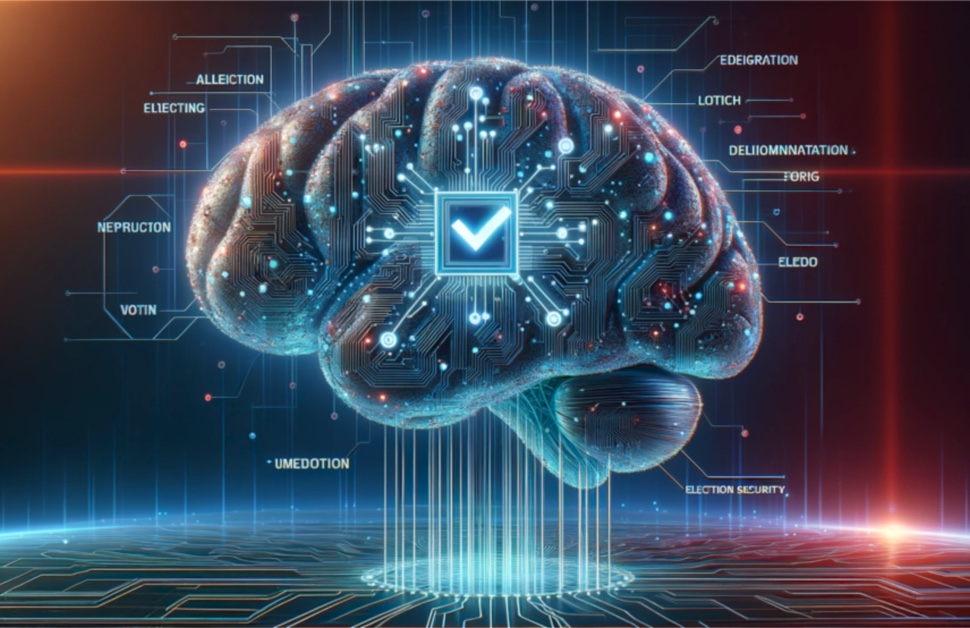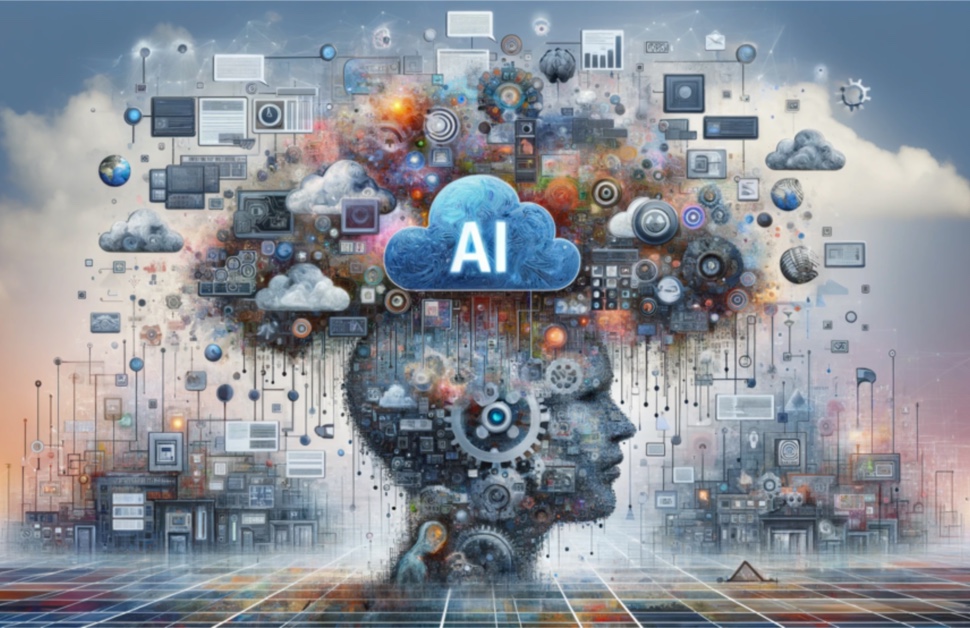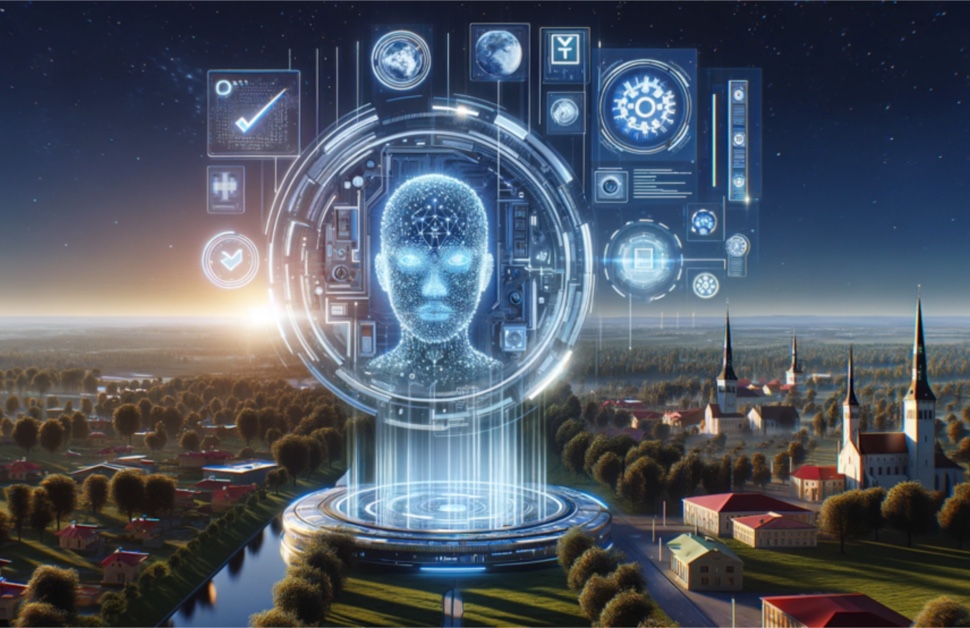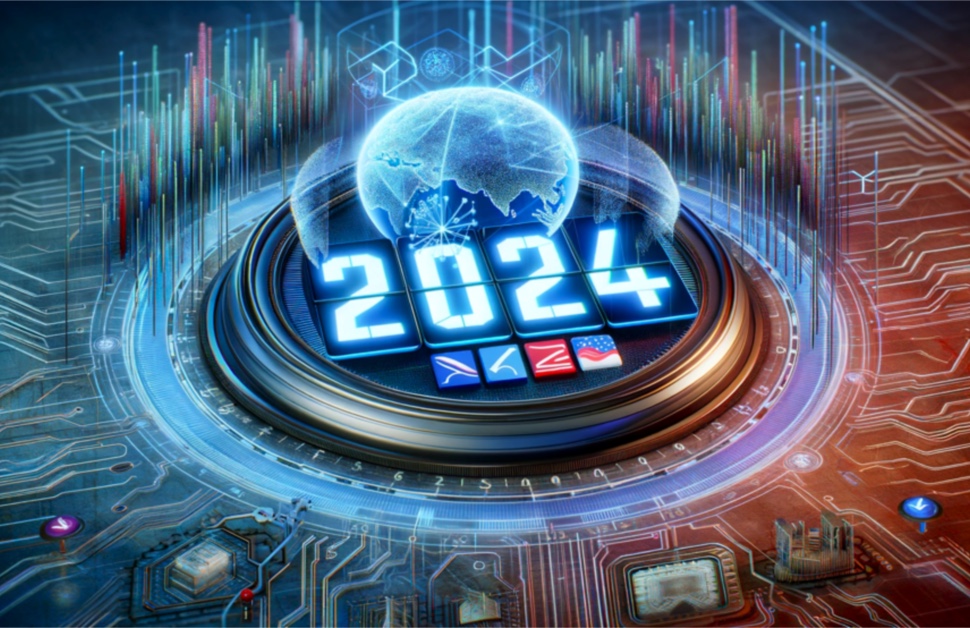As we approach the pivotal election year of 2024, the imperative role of artificial intelligence (AI) in bolstering the sanctity of the electoral process becomes increasingly pronounced. In an era where information serves as both a potent tool and a formidable weapon, the urgency to insulate democracy from the onslaught of digital threats is paramount. This discourse delves into the multifaceted initiatives and groundbreaking strategies employed by technological behemoths and social media conglomerates. They are combating the potential hazards posed by AI, with a particular focus on the realm of disinformation.

The New Guardians: AI in Election Security
Leading the charge in this battle are tech corporations like OpenAI, renowned for their avant-garde contributions to AI. These entities are not only deploying AI systems as bulwarks against misinformation but also as vigilant sentinels. They preemptively identify and neutralize emerging threats. This progressive approach encompasses an array of strategies, ranging from the development of sophisticated algorithms capable of discerning AI-generated fallacies to the institution of robust policies. These policies aim to impede the exploitation of AI for political subterfuge.

Social Media’s Pivotal Role
Platforms such as TikTok have transcended their roles as mere conduits of communication, emerging as pivotal players in the arena of election security. Acknowledging their expansive influence and reach, these platforms have embarked on significant initiatives. These are to ensure their digital realms are not co-opted as incubators for spurious narratives. Advanced watermarking techniques for AI-generated imagery and videos are being adopted. This is to facilitate the easier identification and tracking of synthetic media. Concurrently, these platforms are investing in the enlightenment of their user base. They provide accessible educational resources and information to cultivate a discerning and vigilant community.

The Challenge of AI-Generated Disinformation
Confronting the menace of AI-generated disinformation represents one of the most formidable challenges in this digital guardianship endeavor. The proficiency of AI in fabricating convincing yet entirely fictitious content poses a substantial threat to the veracity of electoral processes. The issue transcends the mere propagation of counterfeit information, extending to the erosion of trust in legitimate informational sources. Tackling this menace necessitates a sophisticated, balanced approach. It melds technological solutions with astute human oversight to efficaciously distinguish between authentic and manipulated content.

Strengthening Democracy Through Innovation
The endeavors of various organizations and digital platforms extend beyond the mere safeguarding of elections. They are instrumental in fortifying the very bedrock of democratic institutions. In an epoch dominated by digital influence, the assurance of electoral integrity is synonymous with the preservation of democratic ethos. The measures being undertaken epitomize a steadfast commitment to fostering an electoral milieu characterized by fairness, transparency, and the unfettered expression of the popular will, untainted by digital subversion.
Case Study: Estonia’s AI-Driven Electoral Integrity

Estonia’s journey in AI-integrated election security offers a model of digital governance. Addressing digital threats and misinformation, Estonia implemented a comprehensive AI strategy for its e-voting systems. This included real-time cyber threat detection, disinformation mitigation on social media, and AI-informed public awareness initiatives. Key to success was maintaining transparency around AI use, boosting public trust. Results included bolstered cybersecurity, reduced disinformation effects, and heightened voter confidence, demonstrating the pivotal role of AI in maintaining democratic processes in a digital world. This case study has been explained in detail in our post “Securing Democracy in the Digital Realm: Estonia’s AI-Driven Election Safeguard”
As we traverse the evolving digital landscape of the 21st century, AI’s role in the protection of electoral processes emerges as a cornerstone in the defense of democratic systems. The pioneering measures implemented by entities like OpenAI and platforms like TikTok are pivotal in this pursuit. By confronting the challenges posed by AI-facilitated disinformation, these initiatives not only safeguard electoral proceedings but also bolster the trust and integrity that form the cornerstone of democratic societies. The journey is intricate and ongoing, yet the unwavering commitment to shielding our electoral processes from digital threats stands as a testament to the resilience and adaptability of our democratic institutions in an era of relentless technological advancement.





One thought on “Navigating the Digital Age: AI’s Crucial Role in Safeguarding Elections”